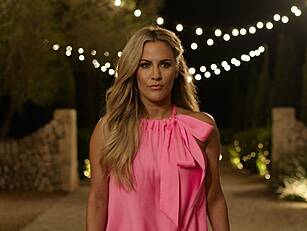IT WAS INEVITABLE really. Fine Gael's election performance in 2011 was close to optimal - there were precious few cases where the party felt it could have turned its share of the vote into more seats.
And that means that, with slightly lower popularity now and 68 outgoing TDs - 57 of whom are male - there was always going to be trouble trying to meet the new requirements on gender quotas.
With 158 seats to fill across 40 constituencies, Fine Gael ought to be looking at two candidates in pretty much every constituency - with the exception of a few five-seaters outside Dublin - and therefore looking at around 85 candidates nationwide.
This means, at the very least, the party would need to offer at least 26 women on its national ticket in order to meet the 30% quota, or face huge deductions in its exchequer funding. Accordingly, it should have 59 men at most.
Dublin Bay North was exactly one of the cases where Fine Gael are best served by a two-seat strategy. The party is less popular in Dublin than its general national standing, and faces a clamour from Labour (who have two outgoing TDs in the area), Fianna Fáíl who will fancy a resurgence with Sean Haughey and Averil Power, an inevitable challenge from Sinn Féin, and some high-profile outgoing independents in Finian McGrath and Tommy Broughan.
Seeking to take two seats out of five is by far the most prudent and pragmatic approach. Running three candidates - as the party will now have to do, with Richard Bruton added to the convention's preference of Naoise Ó Muirí and Stephanie Regan - risks a fractured support which could, conceivably, mean only one gets elected.
The problem is that it's hugely difficult to convince an outgoing TD not to run - and equally so, convincing a Senator (who largely spend their terms shaping up for a run in the general election) that they're not needed for a ticket next time.
And don't forget the Seanad
Rolling Senators into the equation, Fine Gael have 84 outgoing members of the Oireachtas, only 15 of whom are women. Finding more women to add to the ticket is not a problem (and none of the commentary here should be interpreted as a slight on their merit, or the fact that women are criminally unrepresented in politics) - but whittling down the 69 men, to an acceptable national quorum of 59 (or lower), is trouble. Only a single TD, Donegal's Dinny McGinley, has ruled himself out of running in 2016.
That problem becomes even more acute when you incorporate the likes of Naoise Ó Muirí - a popular local councillor with a prominent profile as a former Lord Mayor of Dublin. If the local party organisation feels a longstanding councillor should be rewarded with the chance of running nationally, and vote accordingly, what is the party HQ to do?
If Richard Bruton's quandry is replicated nationally, Fine Gael could find itself running well over 90 candidates - selectively adding outgoing local TDs, or prominent local female activists, as the need arises.
But as it knows it simply cannot replicate the performance of 2011 - especially when the next Dáil will have 8 TDs fewer than the current one - it needs to grasp with reality. Fianna Fáil in 2011 made the crucial error of not being heartless enough with its outgoing TDs - regularly running two candidates, and sometimes three, where there was only ever hope for one. (Dún Laoghaire, where both Mary Hanafin and Barry Andrews insisted on running, is a textbook example. Neither got elected.)
Based on current standing, Fine Gael might hope to get somewhere around 28 per cent in a general election. That's the highest they've performed in any Red C poll in the last 12 months. Electoral geographer Adrian Kavanagh reckons that translates into 56 seats. More recent polls, where Fine Gael take 25% (with FF on 19% and SF on 22%) put them down at 50 seats.
Either way, running 90 candidates means Fine Gael risk sacrificing seats that ought to be theirs. Party headquarters will need to be a bit more heartless in telling other outgoing TDs they're not wanted next time.














